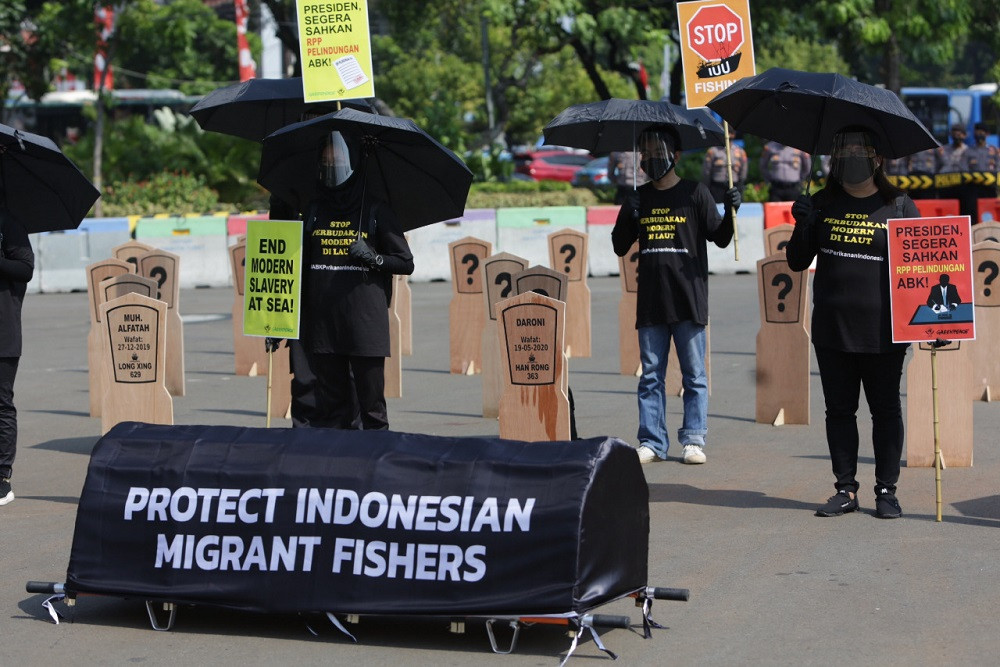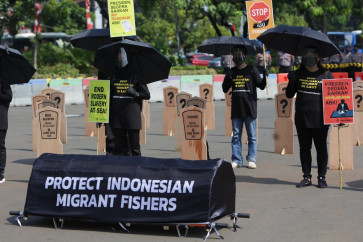Popular Reads
Top Results
Can't find what you're looking for?
View all search resultsPopular Reads
Top Results
Can't find what you're looking for?
View all search resultsThe stormy voyage to justice: Reflections on National Fishers Day
When human rights abuses take place at sea, Indonesian migrant fishers are left with little to no access to communication to report their plights.
Change text size
Gift Premium Articles
to Anyone
F
our years have passed since Rahmatullah returned home as a victim of human trafficking, yet justice remains elusive for him. In 2018, Rahmatullah was promised employment on a fishing vessel heading to Peru by an Indonesian-based recruitment agency. Nonetheless, after transiting through Singapore, he found himself aboard a vessel operating in conflict-ridden waters in Somalia, engaged in illegal fishing activities.
Onboard, Rahmatullah endured exploitation and labored under poor working conditions. The vessel's captain denied him and other migrant fishers adequate food and clean water, forcing them to drink water from the air conditioning system. This was exacerbated by wage deductions and exceedingly long working hours.
Despite being identified as a human trafficking victim, Rahmatullah did not go through the investigative procedure of trafficking in person under the criminal justice system. Instead, his case was referred to the Industrial Relations Court. Although a verdict has been issued, the decision has remained unenforced, and he cannot reclaim his rights due to the bankruptcy of the Indonesian recruitment agency.
Similar inhumane treatment befell 10 Indonesian migrant fishers on board Chinese-flagged Lu Huang Yuan Yu 118 in 2020, resulting in the death of Hasan Apriyadi. In the Hasan case, the vessel’s captain was acquitted of charges, although the Batam District Court said that human rights abuses committed by the captain were proven.
The main hurdle facing the late Hasan and nine other migrant fishers in seeking remedy is the limit of Indonesia’s jurisdiction to enforce national laws on abuses in Chinese-flagged Lu Huang Yuan Yu 118, notwithstanding the vessel’s interdiction taking place in Indonesian waters.
The ordeal Rahmatullah and Hasan endured also happened to thousands of Indonesian fishers aboard foreign-flagged fishing vessels. When human rights abuses take place at sea, they are left with little to no access to communication to report their plights. They encounter difficulties gathering the necessary information for the dispute-settlement process, as their employment contracts and personal documents are withheld by their employers.
Even when the grievance is successfully filed with the authorities or other parties like labor unions, law enforcement and safe repatriation for migrant fishers may not be available when the fishing vessel remains at sea.



















